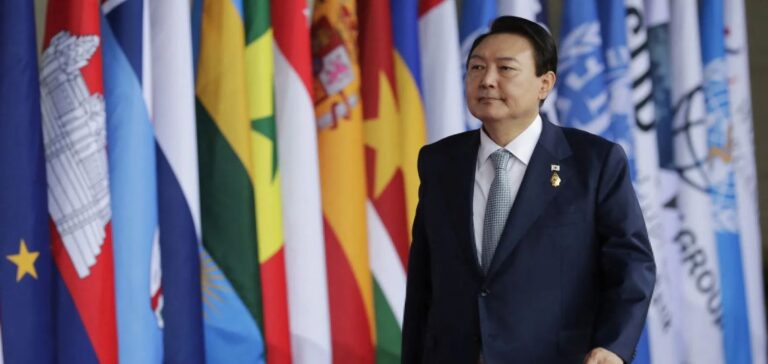South Korea’s new president, Lee Jae-myung, is deploying an energy policy focused on pragmatic diplomacy, amid increasing international tensions. This strategy could place Seoul in significant dilemmas, balancing the expectations of Western allies against economic interests with traditional partners such as China and Russia. Lee’s administration emphasizes diversifying energy supply sources to reduce strategic dependence, underscoring the importance of national autonomy in energy decisions. This stance already raises concerns among some South Korean economic actors, who fear complicated situations ahead.
Relations with the United States: Between Strategic Alliance and Economic Interests
Lee Jae-myung asserts that the United States remains a central ally but simultaneously emphasizes Seoul’s independence in energy policy. U.S. sanctions against Iran and Russia create significant constraints for South Korean refiners, historically dependent on these two countries. This situation forces South Korea to constantly revise its hydrocarbon supplies, resulting in significant cost increases and recurring logistical disruptions. Consequently, Seoul might have to balance strictly complying with international sanctions against meeting its vital energy needs.
China and Russia: Complex Energy Partners
With China and Russia, Lee aims to restore economic relations strained under the previous administration. Nevertheless, American and European constraints against Moscow severely limit available energy options, particularly crude oil from Russia’s Far East. The geographical proximity of these resources, though economically advantageous, directly clashes with current international restrictions. China, South Korea’s main trading partner, represents another delicate balance to maintain as Sino-American rivalries intensify around technology and energy issues.
Risk of Conflicts of Interest for South Korean Companies
This pragmatic diplomatic strategy poses a real risk of conflicts of interest for major South Korean energy companies, notably Korea Electric Power Corporation (KEPCO). These businesses could be forced to choose between maintaining relationships with traditional partners and avoiding potentially severe economic sanctions. In this context, Seoul must carefully balance its diplomatic and economic decisions, while minimizing legal and financial risks for its companies. This growing tension leads the private sector to request greater clarity and regulatory stability from the government.






















